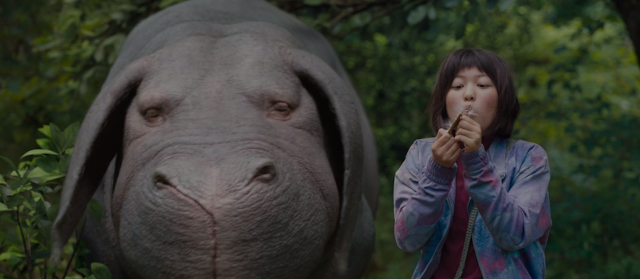The trailer clearly delivered the theme which is about the conflict between the food industry and animal rights. For Levi-Strauss, texts usually use binary oppositions. In this trailer it is clear that audiences are invited to side with the small innocent girl who takes on corporate greed. For Stuart Hall, the meaning of the texts reside in the viewer rather than in the text itself. However, for this film the preferred reading would be on the side of animal rights.
Establishing shot idealise nature and where she is living. The song called the one I love shows the love between the animal and the girl. The narration of a woman voice starts of in a nice away towards the creature but then cuts to an industry environment and shows she is talking about it as food. The narrative is made clear. The girl is always centre frame which shows she is the hero and that she will do anything to save the creature. When the audiences sees her holding a small toy of the creature and looking into the distance you can she is going on a quest to get her creature back. In keeping with all trailers there is very little dialogue, just one liners. Tilda swindon is seen as the villain she is shown grinning saying 'it was a shame we had to tell all these little white lies'. Earlier the spokesman said to the girl 'we will get Okja back'.



This trailer was brand new when we watched it in class. We identified its USP. You have paid attention to some aspects of Stuart Hall's audience theory, such as how audiences take meanings from texts, and narrative theory, such as binary oppositions enabling audiences to understand texts.
ReplyDelete